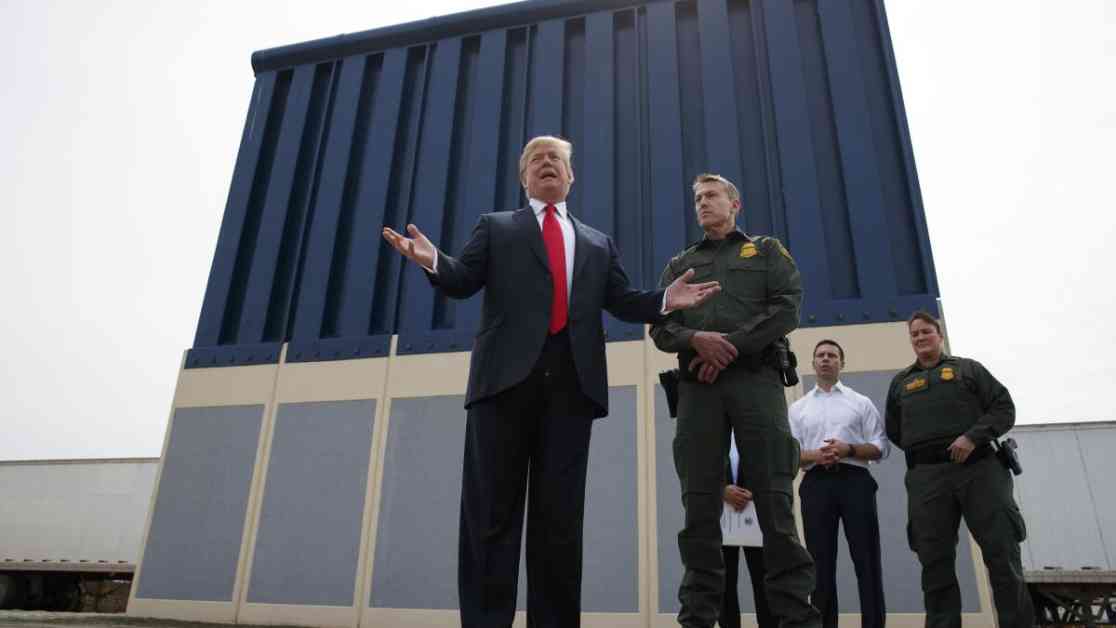President-elect Donald Trump confirmed on Monday that his plan to carry out mass deportations of immigrants in the U.S. illegally will involve the military and a national emergency declaration. This news was shared by Tom Fitton, who leads the conservative legal group Judicial Watch, on Trump’s social media platform Truth Social. Fitton mentioned that the Trump administration is prepared to declare a national emergency and use military assets for a mass deportation program to address the issue of illegal immigration in the country.
In response to questions about the plan, Trump transition spokeswoman Karoline Leavitt stated that President Trump is committed to using every federal and state power available to implement the largest deportation operation targeting illegal criminals, drug dealers, and human traffickers in American history. However, advocates for immigrants, including the American Civil Liberties Union, have expressed readiness to take legal action against such measures.
It is important to note that there is currently no national emergency authority that permits the U.S. to carry out deportations, as highlighted by Aaron Reichlin-Melnick, a senior fellow at the left-leaning American Immigration Council. While Trump’s administration has previously diverted Pentagon funds to expand the border wall by declaring a national emergency, President Biden revoked this emergency order upon taking office in 2021.
Reichlin-Melnick also pointed out that the deployment of U.S. military troops to carry out deportations is not a confirmed strategy, as troops have typically provided logistical support at the border rather than directly participating in rounding up migrants. He emphasized that Trump’s statements often differ from the actual policies implemented during his administration.
Furthermore, Trump and his allies have been criticized for equating discussions about recently arrived migrants with the overall population of long-term undocumented immigrants. The plan for mass deportations may face challenges due to the existing backlog of 1.5 million pending asylum cases in immigration courts and the legal proceedings that individuals released by border authorities are currently undergoing.
During his previous presidency, Trump deported approximately 1.5 million immigrants, with his administration on track to match this figure. However, executing mass deportations as promised would be costly and present logistical challenges. Trump’s proposed strategy involves military troops, collaboration with state and local law enforcement, and the utilization of wartime powers.
The ACLU Foundation of Southern California has filed a lawsuit against U.S. Immigration and Customs Enforcement seeking transparency regarding the agency’s Air Operations and its capacity to expand deportation flights for a mass deportation program. Trump has appointed officials like Tom Homan and Kristi Noem to oversee deportations, with a focus on resuming workplace immigration raids and targeting individuals who pose security threats.
While Trump’s plan aims to prioritize the removal of individuals with final deportation orders, concerns have been raised about the economic repercussions and social impact of mass deportations. Experts predict labor shortages in key industries, increased grocery prices, and economic hardship for families affected by deportations. House Speaker Mike Johnson emphasized the importance of targeting dangerous individuals first and addressing the issue of illegal immigration effectively.
The debate surrounding Trump’s deportation strategy continues, with questions lingering about the feasibility and implications of such a large-scale operation. As discussions unfold, it remains crucial to consider the legal, ethical, and practical aspects of addressing immigration challenges in the U.S.



























